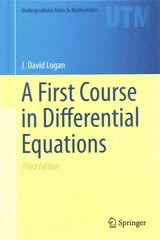Answered step by step
Verified Expert Solution
Question
1 Approved Answer
A person with osteoarthritis of the knee (a common condition in middle-aged and elderly individuals) plans to have a knee replacement. Assume he has a
- A person with osteoarthritis of the knee (a common condition in middle-aged and elderly individuals) plans to have a knee replacement. Assume he has a quasi-linear utility function (U()) over wagewand his healthH. That is,U(w,H) =w+ 104lnH. Suppose with an artificial knee, the person can enjoy 20 additional healthy days annually during the next 10 years, during which he can earn a wage of $150/day. The annual interest rate is 2 percent.
a. What is the increase in the person's wage income if the person decides to get his knee replaced?
b. What is the net present value of the monetary return on knee replacement surgery?
- Now suppose that in addition to the above conditions, the person also has a current health capital of 500 units. In the next decade, the additional health capital attributable to the artificial knee is given in the following table:
Year 1 2 3 4 5 6 7 8 9 10
Health capital 50 49 48 46 43 39 34 28 21 12
- The patient discounts his utility from health capital at a 10 percent annual rate. That is, he is indifferent between receiving 100 units of health capital this year and receiving 110 units next year.
- c. What is the present value of his utility gain from having knee replacement surgery?
- d. If the total cost (including both the monetary loss from paying the surgical fee and the disutility from undergoing the surgery and recovering) is $30,000, should the person undergo the surgical procedure?
Step by Step Solution
There are 3 Steps involved in it
Step: 1

Get Instant Access to Expert-Tailored Solutions
See step-by-step solutions with expert insights and AI powered tools for academic success
Step: 2

Step: 3

Ace Your Homework with AI
Get the answers you need in no time with our AI-driven, step-by-step assistance
Get Started


